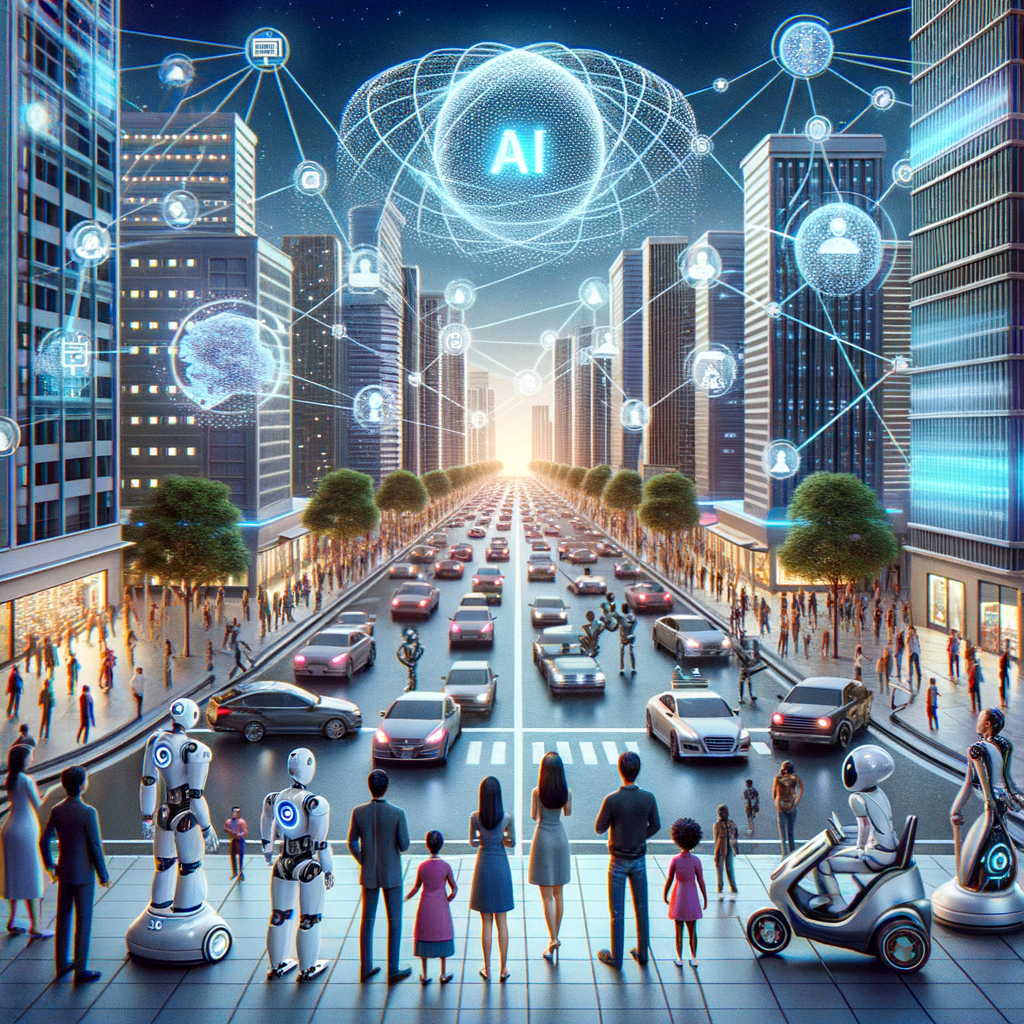The best way to predict the future is to create it yourself ….
The Current Landscape of AI in 2020
The advent of artificial intelligence (AI) has ushered in a new era of innovation, transforming industries and daily life in unprecedented ways. As we navigate through the 2020s, AI continues to evolve, becoming more integrated into our world. This journey is not just about technological advancements; it’s a reflection of how we adapt, govern, and ethically shape the future of AI to enhance humanity’s potential.
The 2020s: Advances, Ethics, and the Future of Work
AI’s development in the 2020s is characterised by remarkable achievements and challenges. The technology’s capabilities have expanded from automating simple tasks to enabling complex decision-making processes, fostering a symbiotic relationship between humans and machines. This era is also marked by a critical examination of AI’s ethical implications and its impact on the workforce. As AI takes on more responsibilities, industries are prompted to reassess job roles and the concept of work itself, ensuring that humans and AI coexist in a way that enhances productivity and job satisfaction.
The Role of Advanced GPUs in AI Acceleration
A pivotal factor in the rapid advancement of AI capabilities has been the evolution of Graphics Processing Units (GPUs). Originally designed for rendering graphics in video games, GPUs like those developed by Nvidia have become the backbone of AI processing, capable of handling complex mathematical calculations at incredible speeds. This has significantly reduced the time required for training AI models, making it feasible to process vast amounts of data and develop more sophisticated AI systems. Nvidia’s continuous innovation in GPU technology is pushing the boundaries of what’s possible in AI, enabling real-time processing and analysis that are critical for applications such as real-time translation, and predictive analytics.
AI in Healthcare, Creativity, and Beyond: Current Applications
Currently, AI’s applications span various sectors, with healthcare and creativity standing out. In healthcare, AI is revolutionising diagnostics, treatment planning, and patient monitoring, offering more personalised and efficient care. In the realm of creativity, AI is being used to compose music, generate art, and even write poetry, challenging our perceptions of creativity and machine capabilities. These applications demonstrate AI’s potential to not only augment human abilities but also to open new avenues for innovation and exploration.
The Ongoing Debate: Ethics, Privacy, and Regulation
As AI becomes more embedded in our lives, concerns about ethics, privacy, and regulation come to the forefront. The debate centres on how to balance the benefits of AI with the need to protect individual rights and ensure equitable access. Governments and organisations are grappling with these issues, working towards frameworks that govern AI’s development and deployment responsibly. This includes addressing biases in AI systems, ensuring transparency in AI-driven decisions, and safeguarding against the misuse of personal data.
The Road Ahead: Future Trends and Potential in AI
Looking ahead, the potential of AI is vast and full of possibilities. We’re on the cusp of seeing AI systems that can learn and adapt in real-time, enabling more personalised and intuitive interactions. The integration of AI across various aspects of life is expected to deepen, making smart homes, autonomous vehicles, and AI-assisted healthcare more commonplace. Furthermore, the evolution of AI is likely to spur new forms of art, entertainment, and communication, redefining human creativity and expression.
Top 5 Predictions for the Use of AI till 2025
- Experiential AI Integration: AI will move beyond functional applications to create more immersive and personalised experiences across entertainment, education, and wellness, enhancing our interaction with digital and physical environments.
- Human-AI Symbiosis: The collaboration between humans and AI will become more seamless, with AI systems designed to augment human intelligence and creativity, leading to unprecedented levels of productivity and innovation.
- Ethics and Governance: There will be a global consensus on ethical AI use, with comprehensive frameworks that ensure AI’s development and deployment are aligned with human values and societal well-being.
- Ubiquitous AI Adoption: AI technology will become an integral part of everyday tasks, from personalised education plans to smart home management, making life more convenient and efficient.
- Regulation and Privacy: Enhanced AI regulation will emerge, focusing on privacy, data protection, and transparency, ensuring that AI advancements do not come at the cost of individual rights or societal cohesion.
Conclusion: The Future is Now
Embracing the AI Revolution
As we explore the vast landscape of AI in the 2020s, it’s clear that the technology’s potential is only just beginning to unfold. By embracing AI, we open the door to a future where technology enhances human capabilities, creativity, and well-being.
Call to Action
Let’s engage in this journey together, exploring the possibilities, navigating the challenges, and shaping a future where AI serves as a force for good. Share your thoughts, experiences, and predictions for AI’s future in the comments below or on social media. Together, we can ensure that the future of AI is bright, ethical, and inclusive for all.


